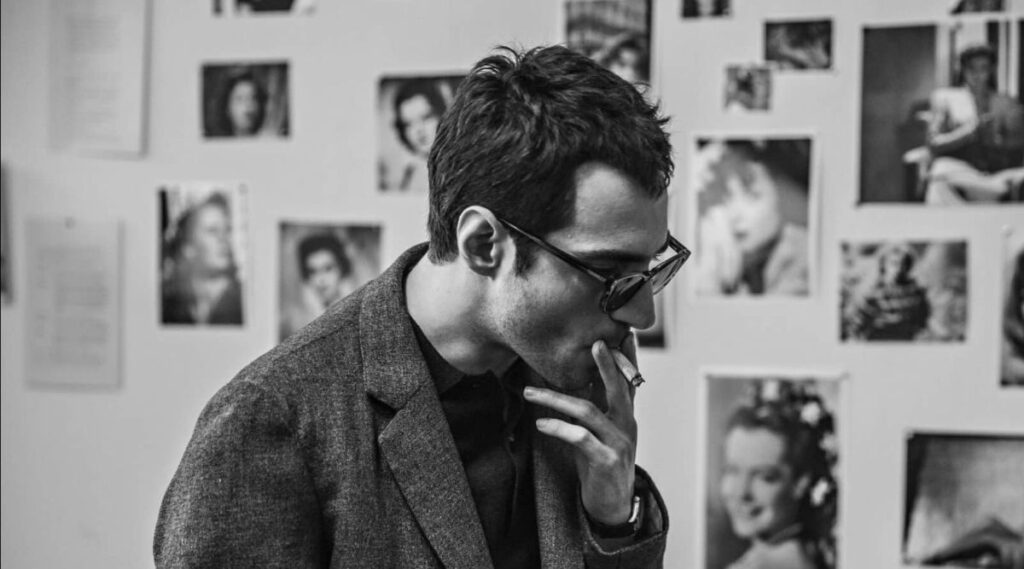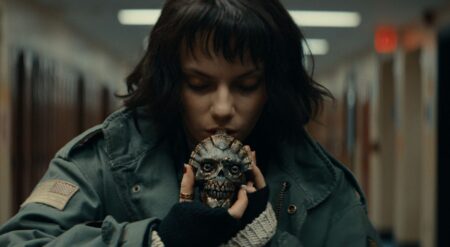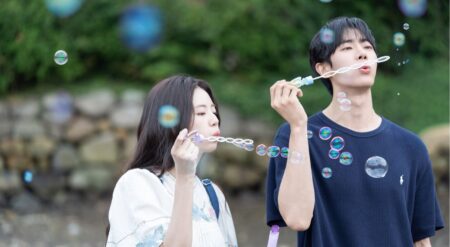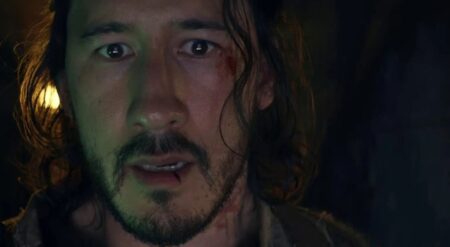Nouvelle Vague, directed by Richard Linklater and distributed by Netflix, should not work on paper. It’s a French-language movie directed by an American, chronicling the creation of one of France’s most treasured films of all time, Jean-Luc Godard’s Breathless. Guillaume Marbeck plays the pretentious journalist-turned-director alongside a massive ensemble cast—a veritable “who’s who” of every French New Wave character you can think of.
The movie is shot in the style of a New Wave film, mostly, but dares not hold the same level of pretention as its subject, indulging in just enough modern filmmaking so as not to overdo the premise and thread the needle into a quite good ode to a master, a classic, and a movement. It is impressive how Nouvelle Vague can portray such a self-righteous character and such a seminal cornerstone of film history without feeling like it’s trying too hard to imitate or conjure their historical significance.
When we meet our players, Godard is chatting with his friends from Cahiers du Cinéma, the film magazine for which he writes and that serves as a sort of social club for filmmakers and the film-obsessed. Their friend, François Truffaut (Adrien Rouyard), is on the verge of premiering his revolutionary piece, The 400 Blows (Les Quatre Cents Coups), at the prestigious Cannes film festival. They’ve already seen and deeply admire the movie, but Godard wants to travel to Cannes to see the audience’s reaction to this triumph of cinema for himself.
Nouvelle Vague assumes you know about the French New Wave, but doesn’t require it.
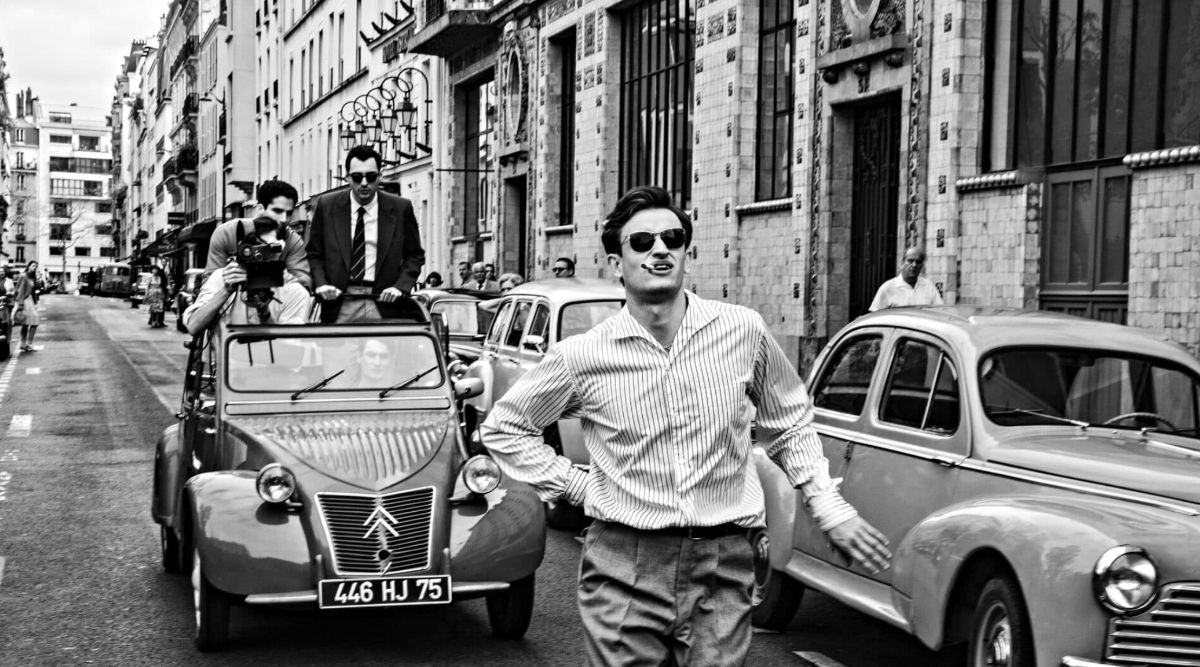
Nouvelle Vague drops you so immediately into the world of its characters. It never stops to explain who most of the dozens of individuals are who pose for the camera with their names written beneath them before entering a scene for the first time. You are expected to either already know and recognize the directors, writers, and producers being referenced or just carry on otherwise. Sure, these moments, or the occasional line of dialogue, can feel like cameos or easter eggs for the initiated, but they also help build a full and bustling world that is the French New Wave.
There’s no time to stop and over-explain who Roberto Rossolini (Laurent Mothe) is. It’s enough that Godard refers to him as the father of the New Wave. Or, the fact that characters like Jacques Demy and Agnès Varda only appear briefly on screen and are never referenced again.
If you know and admire their work, it’s satisfying to see them drawn in the same circles as the main character. If you don’t know these names, they are among a dozen named characters filling an excited room receiving a lecture from Rossolini. The world of their young new movie-making is so clearly alive and exciting just by their presence and apparent importance.
Nouvelle Vague admires the New Wave without merely imitating it.
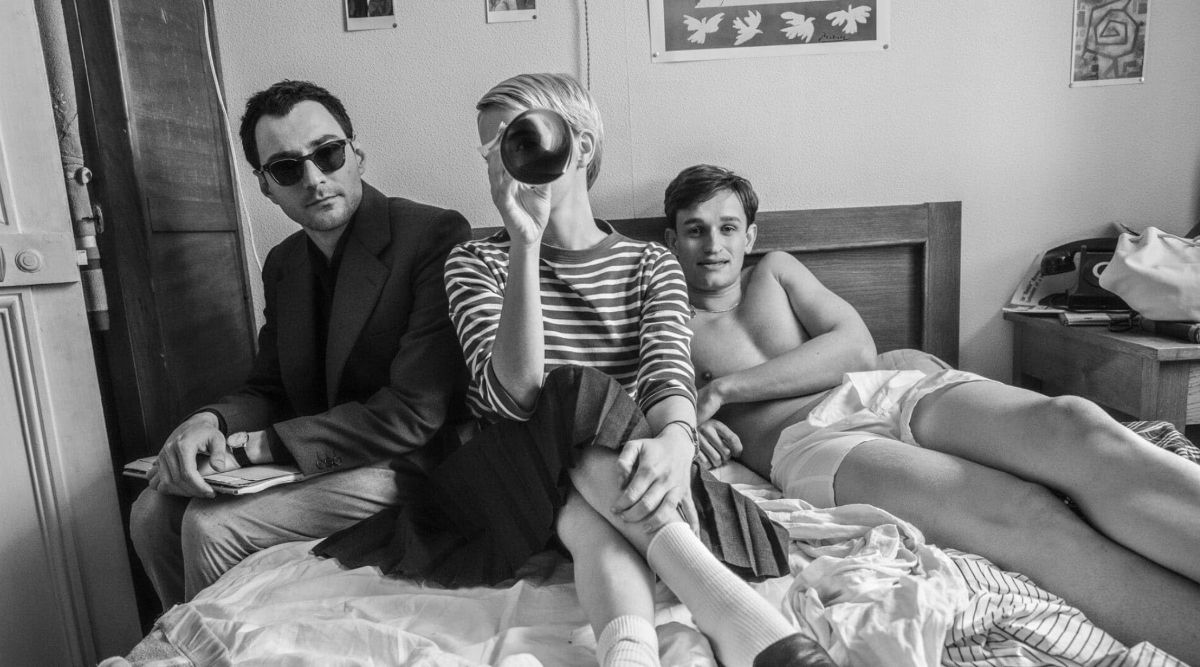
Nouvelle Vague is shot in a square aspect ratio, is black and white, uses a grain filter, features fake reel transition indicators, and is spoken in French, just like the movies of the 1950s that it celebrates. While these elements can sometimes feel like cheap gimmicks in other movies, here, they feel essential.
The movie employs the stark transitions, ornery close-ups, and character-over-story stylings that the French New Wave made famous, yet it never feels like it’s going out of its way to imitate a certain bygone style. The movie feels at once classic and modern in a rare display of directorial prowess and admiration. It’s showcased best in scenes where the camera breaks from New Wave tradition and uses modern tracking techniques to capture just how impressive and novel the camerawork was in 1949.
At the heart of the plot is Godard’s attempt to mount his first feature film as a director. He has a paltry budget thanks to his producer and friend, Georges de Beauregard (Bruno Dreyfürst), and only 20 days to shoot a movie with no script, which nobody believes in. But rather than a trite story about a struggling artist, Nouvelle Vague is a movie about an overly confident artistic genius.
Like any good French New Wave movie, it’s character over plot.
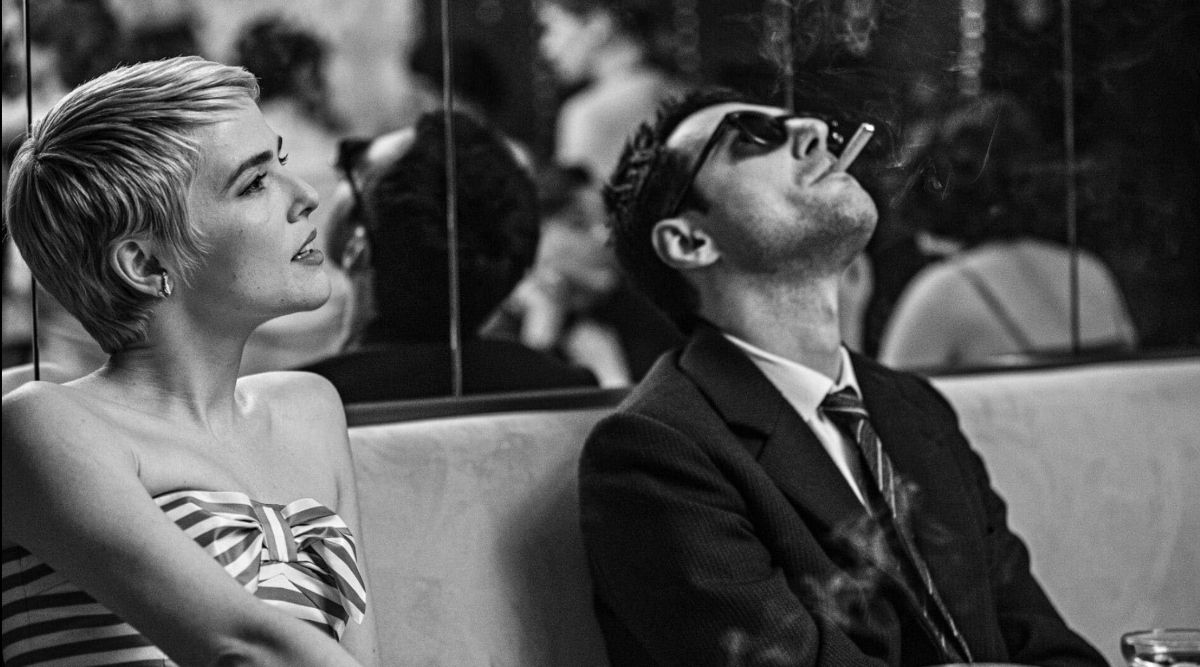
Godard rustles some feathers along the way, but as the shoot prevails, everyone comes along with the quote-spewing, constant-break-taking auteur. Even his biggest initial detractor, the American star Jean Seberg (Zoey Deutch), can’t help but marvel at the bizarre way Godard approaches filmmaking.
It’s guerrilla filmmaking to an extreme. Extras are shot unknowingly, lines are given to actors at the very moment they’re meant to speak them, and their blocking is meant to be organically derived from Godard’s specific but concise instructions.
The man is quite unlikable, and yet, absolutely charming to the last. Marbeck plays him to wonder and bewilderment in equal measure. Like a good French New Wave movie, his motives are never really explained, although his influences are made abundantly clear as he talks to friends and masters of the craft throughout Nouvelle Vague. His process is so captivating, but equally confounding. It only works as a movie whatsoever because history proved Godard right.
Nouvelle Vague, like Godard in his filmmaking process, seems like nonsense on paper. Yet, it culminates in an exciting and satisfying experience that honors the movement he helped build without ever falling into imitation or embarrassing itself in the French New Wave’s trappings.
Nouvelle Vague is playing now in theatres and is streaming exclusively on Netflix on November 14th.
Nouvelle Vague
-
Rating - 8/108/10
TL;DR
Nouvelle Vague culminates in an exciting and satisfying experience that honors the movement Godard helped build without ever falling into imitation or embarrassing itself in the French New Wave’s trappings.

